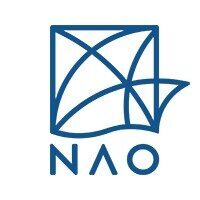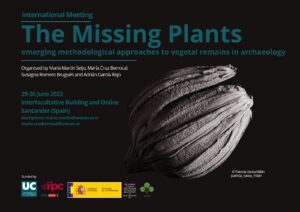29 June 2023
(moderators María Martin Seijo and Susagna Romero-Brugués)
9:00-9:45 Keynote: ‘Last Unknown’: revealing the plant diversity of New Guinea’ by Tim Utteridge (Royal Botanic Gardens, Kew)
1. Dendroscience and palynology
10:00-10:30 Advances in tree-ring sciences to determine the date and provenance of wooden cultural heritage by Marta Domínguez-Delmás (DendroResearch; Universitat Autònoma de Barcelona) 10:30-11:00 (20:30-21:00 UTC+12) Canoe Plants and Gardened Forests: recent development and future prospects for anthracology in the Pacific by Emilie Dotte- Saroute (University of Western Australia) (ONLINE)
11:00-11:30 (21:00-21:30 UTC+12) Shining a light on the past: new tree-ring based research to advance archaeological dating in Aotearoa-New Zealand by Gretel Boswijk (University of Auckland) (ONLINE)
Coffee-break
12:00-12:30 X-ray CT scanning for dendro research: the basics and examples from UGent-Woodlab – UGCT by Jan van den Bulcke (Ghent University) (PRE-RECORDED)
12:30-13:00 Pollen: a tool for archaeological interpretations in the Tropics by Marcela Castañeda (Smithsonian Tropical Research Institute)
13:00-13:30 Q&A
2. Plants as food: diet and recipes
15:00-15:30 (23:00-23:30 UTC+10) MicroCT applications in archaeobotanical research by Aleese Barron (Australian National University) (ONLINE)
15:30-16:00 Experimenting and scratching everything is starting. Experimental archaeology to understand food remains. The case of Taipingot, Rota, Northern Mariana Islands by Marian Berihuete Azorín (Universitat Autònoma de Barcelona) 16:00-16:30 (17:00-17:30 UTC+2) Multi-proxy approaches for the identification of plant ingredients, cooking practices and food products in Archaeology by Amaia Arranz (Ikerbasque Research Associate, UPV/EHU) (ONLINE)
Coffee-break
17:00-17:30 Archaeobotany of food: high-resolution microscopy and biomolecular analysis of archaeological remains of cooked food by Lara González Carretero (University of York)
17:30-18:00 Potential and limits of microfossils (phytoliths and starch) for the identification of food plants in the Pacific by Alex Chevalier (Royal Belgian Institute of Natural Sciences)
18:00-18:30 Q&A
30 June 2023
(moderators María Cruz Berrocal and Susagna Romero Brugués)
9:00-9:45 Keynote: Colecciones etnográficas en el Museo de América: una oportunidad para la botánica tropical by Beatriz Robledo (Museo de América)
3. Plant-based crafts and technologies
10:00-10:30 María Pastor (Universidad de Alicante) (ONLINE): Impressions of plant materials in the macroscopic study of earthen architectural remains: multiple contributions to the study of building activities
10:30-11:00 Alejandra Sánchez Polo (Universidad de Valladolid): Imprints in mud: some answers and a lot of questions about plant imprints in architectural remains of the Meseta Late Prehistory
Coffee-break
11:30-12:00 Céline Kerfant (Universitat Pompeu Fabra): Comparative anatomy and phytoliths studies: a combined approach to understanding past plant technologies in Asia and Oceania
12:00-12:30 María Martín Seijo (Universidad de Cantabria, IIIPC) and Nuria Romero (Universidade de Santiago de Compostela): Minimal and non-invasive analysis for studying wood crafts and other plant materials
12:30-13:00 Patricia Varea Milan (Independent artisan) (ONLINE): Those Seeds: between Science and Art
13:00-13:30 Q&A
4. Micromorphology
15:00-15:30 Guillermo Alzate (Universidad de Cantabria) + Adrián García Rojo (IIIPC, Universidad de Cantabria) + Miguel Ángel Sánchez Carro (IIIPC, Universidad de Cantabria): Micromorphology of the white banded deposits of the Fuente del Salín archaeological site: comparison between very thin calcitic laminae and seaweed microstructures
15:30-16:00 Aroa García Suárez (IMF-CSIC) + Marta Portillo (IMF-CSIC): Micromorphological applications of phytolith studies to exploring use of plant resources
16:00-16:30 Q&A
Coffee-break
5. Lab Session
17:00-18:30 Jesús García Sánchez (IAM-CSIC): Case study based on plant imprints

